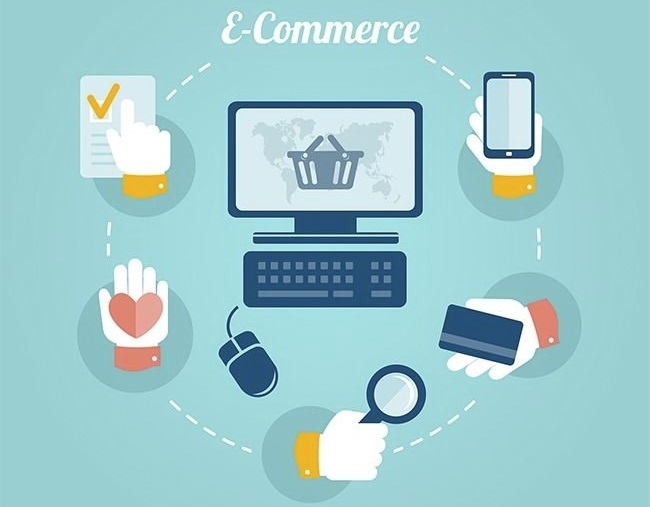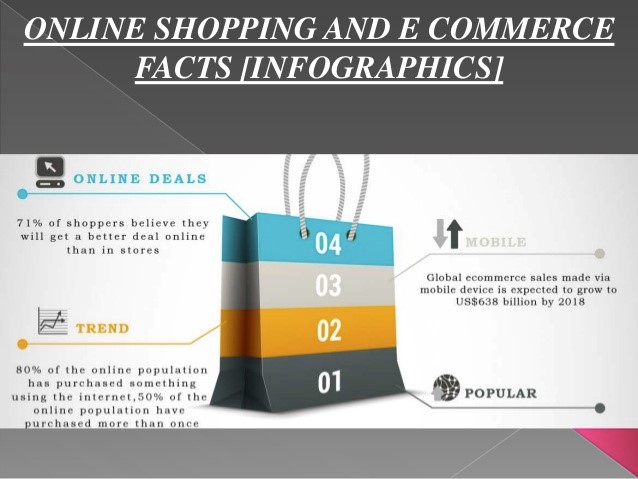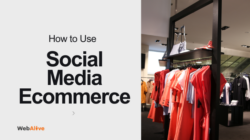
12 Proven Advantages of Ecommerce Against Brick and Mortar
If you currently have a brick and mortar store, and you haven’t yet made up your mind about taking your business online, now’s the time to get started.
Here are twelve compelling advantages of ecommerce you would gain by taking things to the next level.
1. Ubiquity
E-commerce is no longer just an alternative form of shopping; it’s the norm. Presently you can buy almost anything you want from anywhere in the world, and it keeps getting easier to do this.
The amount and types of available products and services available and sellable online keeps growing. Small businesses and individual entrepreneurs can sell clothes, jewellery and other handmade products.
Travel agencies can help travelers book their next vacation, from flights to hotels and rental cars. Innovators can crowdfund their ideas, projects and apps. And if you are reading this on your lunch hour, you can have food delivered to your office without having to pick up the phone or leave your desk.
Aside from engaging in retail, you can develop business-to-business relationships. You can start the dialogue through social media or email.
2. Automation lowers your expenses
One of the most unmistakable advantages of e-commerce is the lowered cost. You can save so much money that you can give your customers heavy discounts and still turn a profit
From organic search engine results, pay per click advertising, and social media, there are many opportunities for cost-effective advertising.
Another way to keep costs down is to automate the various processes involved in e-commerce. Retail processes that customers go through, such as searching for products, checking availability, placing orders, shopping cart, checkout, and billing are familiar to shoppers these days.
Also, inventory management and other back-end operational tasks can be handled not only online, but also remotely via mobile devices.
3. Niche products and services
In the physical world, niche products may be difficult for customers to find. You used to require a telephone, telephone directory, and creative ways to look for the products you want. Some of the research just to get started was just too difficult. And sourcing on a national or international scale was impossible, for all intents and purposes.
Now, all you need is a search engine to find what you want. E-commerce has made niche marketing not only possible but profitable. It is now possible to find, develop and even create niche markets for products.
4. You learn more, faster
Physical brick and mortar store simply cannot compete with an online e-commerce site in terms of monitoring your performance against your peers. Google Analytics and other SEO tools that can help you monitor your website traffic and ranking on search engines.
Online retail stores can keep tabs on how interested their customers are about their products, simply by checking how often a product’s page gets views. Also, online review sites allow you to track the performance of your business in handling customer service and sales.
The learning curve is much steeper for stores in the physical world who don’t operate online, and a lot of learning that new business owners do along the way takes longer. Having an online store, or at least having an online presence can mean the difference between survival and failure.

5. The internet has levelled the playing field for businesses
Small businesses can compete with larger ones by being cleverer and more internet-savvy. Anyone can get a business started with very little startup capital.
If you have something to sell, no matter how small, you have a fighting chance to get your product out to your target market. Just as importantly, your potential customers can find you easily as well.
Related article: 3 Ways to Get More Reviews from Your Customers
6. You can take advantage of digital marketing opportunities
By being online, your business can create ads and post them on social media platforms, and spend very little money in the process. You can reach all of your customers, or target a smaller demographic by zooming in on a cross-section of them based on parameters such as age, sex, location, and lifestyle.
Tools that allow you to build and manage your email mailing lists make it easier to reach out to your customers every time you have a new product to promote.
Marketing opportunities are simply far too tedious to engage in, without going digital, and virtually every modern advertising firm engages in digital marketing, with offline services as secondary marketing platforms.
7. Capital outlay and recurring operational and utility costs are minimal
Starting a new business used to mean having to find retail, office, and warehouse spaces, outfitting them to specifications to accommodate plumbing, electricity, telephone and internet connectivity, installing storefront and signage, and other costs, all of which add up very quickly.
Then you add the cost of rent, salaries and operational expenses, and products to sell, and you begin to wonder how long you can keep this up. Many businesses can fold after a very short time, having run out of money simply by not being able to make enough money to keep up with the expenses.
8. Online retail growth is much faster than that of traditional retail
The Wall Street Journal recently polled U.S. shoppers who have made at least two online purchases in a 3-month period.
Results show that shoppers made more purchases online than in retail stores, with the exception of groceries. Up from 48 percent in 2015 and 47 percent the previous year, the current percentage stands at 51%.
Meanwhile, the same survey also reported that these shoppers’ purchases made in a retail store the old fashioned way, i.e. without using any help from the Internet, declined to 20% this year. Last year, physical retail purchases accounted for 22% of their shopping.
The older generations (Baby Boomers and Generation X) are contributing to the growth of online retail commerce, with the numbers of users for these groups showing an increase over last year. As you can see from the infographic below, online shopping just keeps gaining traction, with no end in sight.

Source: slidesharecdn.com
9. Virtual Stockrooms eliminate the need for warehouses
E-commerce marketers have another advantage over their brick and mortar counterparts. They can keep minimal stocks on hand.
In a traditional store, if a customer wants to buy an item and you don’t have it in stock, usually they’ll immediately go somewhere else. To avoid losing customers, retailers would have to maintain a stockroom full of items in various styles, colours, and sizes just to keep all bases covered. This requires plenty of storage space, which can cost a ton of money in rent, insurance, and other expenses.
As an online retailer, you would be able to purchase the item from your supplier upon receiving the customer’s order. Instead of having a ton of dead money collecting dust in a warehouse, you have flexibility. If you and your supplier have a healthy relationship and communicate well, you won’t miss having a stockroom at all.
10. E-commerce markets can maximise vertical as well as horizontal business relationships
Horizontal e-commerce means that the retailer can sell a wide variety of products and services. This is the one-stop shop model, and online retailers who identify themselves as such emphasise convenience as their strongest asset.
Vertical e-commerce marketers specialise in specialised categories of items and services, or even niche products, relying on their abilities to showcase products better and offer a more tailored customer experience.
As an online marketer, you have all the resources and tools at your disposal to be able to choose your path, while traditional retailers just starting out may struggle with competing with others in their field.
11. Online shopping is safer in more ways than you think
Consumers new to shopping online might still have misgivings about online payment gateways, but security has come a long way, with 256-bit SSL certificates for web pages and their content.
That means that information related to your customers’ transactions are hidden from prying eyes. Also, with Level-1 PCI compliance, your customers’ credit card information remains safe.
Brick and mortar stores have to worry about actual break-ins, where merchandise, money, instruments and equipment may be vulnerable. Also, the livelihood and personal safety of your employees may be in harm’s way. Online retail stores would not be forced to close due to theft or property damage.
12. No more bottlenecks
If you want to stay competitive in your market, you have to move products and services faster. To close sales at a brick and mortar location, salespeople are dependent on walk-ins and cold calling to get things moving. And they’re at the mercy of the customer most of the time.
The idea that “the customer is always right,” or that the customer is always in charge, is one of the tenets of retail and customer service that vendors and salespeople used to worry about because it places them at a disadvantage, or decreases their leverage.
Nowadays, they only need to present their product information clearly and in a well-organized and timely fashion, and it’s the customer’s job to do the rest of the work. There’s no need to pitch, persuade, or engage the client in difficult, tiresome negotiations online.
These benefits of e-commerce should be enough to make any brick and mortar business take their business online. Need more convincing? Leave a comment below.
You read a lot. We like that
Want to take your online business to the next level? Get the tips and insights that matter.

